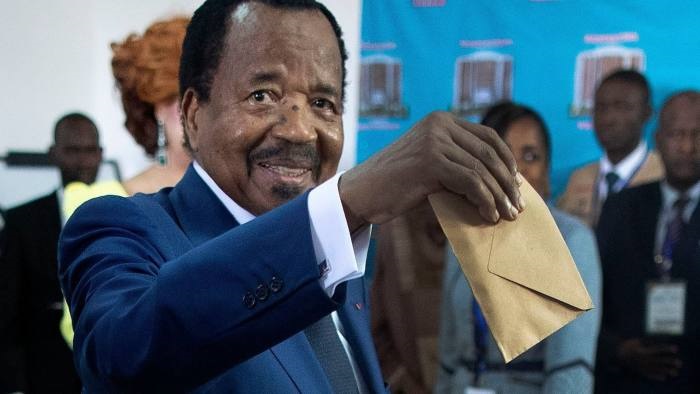Since the presidential election on October 12, Cameroon has been in turmoil. While opposition candidate Issa Tchiroma Bakary has declared himself the winner, citizens are mobilizing to monitor the vote count, facing a regime willing to do anything to keep 92-year-old Paul Biya in power.
The atmosphere has been tense: opposition frontrunner Issa Tchiroma Bakary, a former minister and president of the Front for the National Salvation of Cameroon (FSNC), announced his victory on the night of October 13-14, while authorities and supporters of incumbent President Paul Biya are threatening anyone who publishes results before the Constitutional Council. Cameroon is now plunged into a post-election crisis, a scenario that is neither new to the country nor to the world. Challenges to electoral outcomes have multiplied in recent years, from Kenya to Brazil and the United States, in countries with particularly contentious and violent political histories.
In Cameroon, massive protests did occur in 1992, following major mobilizations (the “ghost town” protests), and again in 2018, when the Cameroon Renaissance Movement (MRC) believed it had won the election.
The current mobilizations stand out for both their intensity and their timing – before any official results have been announced – and for their objective: to enforce what candidate Issa Tchiroma Bakary called “the truth of the ballot boxes”, meaning results that reflect the actual votes cast. This is precisely what makes these online and now street-level struggles unique: in a country with low trust in institutions, where past electoral fraud has been admitted by some authorities, and where “fakes” (documents, diplomas, international observers) are regularly exposed, opposition parties, civil society activists, and citizens have decided to reveal their own electoral truth against that of the authorities in charge of counting votes.
An Unexpected Electoral Mobilization
The rules of the electoral game have been contested since the return of multiparty politics in 1990. Calls for reform come from opposition parties, the Catholic Church, NGOs, and some international partners. They focus on the presidential election system (currently a first-past-the-post system favoring the incumbent), electoral materials (advocating for a single ballot, harder to falsify, and for complete biometric registration and authentication), and for the independence of the institutions responsible for organizing and overseeing elections. Before each election, half-measures are taken that satisfy the expectations of those who fund them, but not those of the political parties that boycott some polls.
Faced with these biased rules, and with proven fraudulent practices that are hard to detect due to a lack of accredited observers and the presence of partisan poll watchers, voter turnout declined steadily throughout the 1990s-2010s. In 2018, barely
